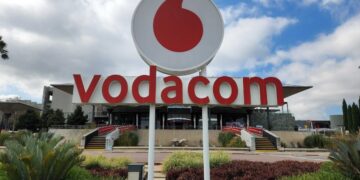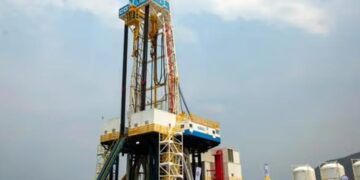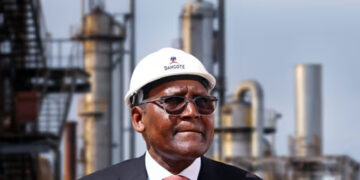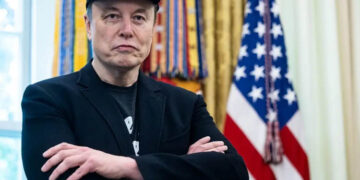Why nuclear should form part of our Just Energy transition
It is ironic that just as the COP26 Climate Change Conference wrapped up in Glasgow a few weeks ago, electricity prices soared as Europe braced for a bitterly cold winter.

It is an abject lesson in the folly of looking to renewables as the primary solution to our energy problems. African countries are being asked to euthanise their fossil fuel industries just as the continent lifts itself out of poverty.
There is understandable anger that Africa should be asked to shoulder a disproportionate burden for the climate damage inflicted by the world’s biggest economies, notably the USA and China.
There is another solution now gaining traction in Africa that ticks all the right boxes, and that is nuclear energy: Africa’s only nuclear power plant, Koeberg, has produced the cheapest, cleanest and most reliable electricity in SA over its 60-year life.
The primary objections to nuclear energy are safety and cost. Some argue that there is ‘potential’ for corruption, and cite the aborted nuclear energy procurement programme of five years ago as a cautionary lesson.
One could just as easily lob that same bomb at any of the energy solutions being offered as solutions to our energy crisis. As we have seen in SA, corruption is never far from the surface and is agnostic as to the type of energy being promoted. We must guard against corruption from whatever source it comes, whether renewables, gas, coal or nuclear.
Climate change mitigation is not only about cleaning up the power generation sector, but should include other sectors like transportation and industrial, which are also major emitters of toxic pollution and greenhouse gases into our environment, affecting our air quality.
Surprising
With nuclear energy being the top contributor toward climate change mitigation, it is surprising that most of the resistance it receives comes from the fraternity that beats the drum for climate change.
While we welcome private participation in our energy sector, stakeholders should be responsible for ensuring we plan and build sustainable energy systems that provide cleaner, more reliable, and affordable electricity for our country, including meaningful local employment during construction and operations. We should also ensure we don’t sacrifice the environment and our economy just for the sake of ‘transition’.
As an energy industry, we need to get over ourselves and our vested interests and realise that an accelerated just energy transition is simply not possible without a balanced and sustainable energy portfolio, which should include nuclear energy to stably achieve our climate goals.
Weather-dependent land-based renewables on their own are ineffective and require additives that substantially raise the cost and the CO₂ emissions.
They have the lowest energy return on investment (EROI), requiring the most infrastructure and land per unit of electricity produced.
Even a transition to electric cars won’t make sense without access to clean, reliable, and affordable electricity or hydrogen, which nuclear energy delivers on demand.
Charging an electric car with a coal-powered or unreliable grid, makes little environmental and economic sense for the owner, other than displacing pollution from the cities and into the country.
The bigger picture
A just energy transition should not only serve the interests of its providers, but also serve the energy demands and economic interests of our country.
Given the persistence of our dire energy situation after more than a decade, we seem to have failed miserably.
All the energy technologies we have at our disposal, which now include hydrogen, should work in harmony while we carefully manage the transition toward cleaner and safer energies without disrupting the economy, our energy systems, and the environment.
In general, little is known about nuclear energy. The public has also been misled on the value proposition of nuclear energy for South Africa, and is therefore not sure whether it has a role to play in our energy transition or not. This polarisation in the clean energy sector has kept the world dependent on fossil fuels for over 80% of its energy needs, which seems to be increasing with unabated emissions.
So let’s change that skewed perception with reality and get nuclear energy back in the world’s just energy transition and give it a chance of achieving those net-zero goals by 2050.
Phasing out of coal
South Africa’s dependence on coal power plants will naturally phase out with the retirement of 25 000 megawatts over the next two decades. That’s 1.25 gigawatts a year, starting from now.
This should ideally be replaced by clean baseload energy at a pace and scale we need if we are to catch up and maintain our energy security.
These retired coal power plants should be ideally replaced by small modular nuclear reactors (SMRs) or gas power plants of similar output capacity.
The existing infrastructures and labour resources will be perfectly matched with these advanced technologies and opportunity for Industry 4.0 career developments.
CO₂ and toxic emissions will reduce dramatically in the region and improve the quality of life for people living there.
Some of the valuable attributes of nuclear energy include:
- It is the most reliable source of electricity with an energy availability factor of more than 90%;
- It delivers one of the cleanest sources of electricity available today, with CO₂ emissions of less than 15g per kilowatt hour (kWh);
- It is also ranked as the safest energy source per unit of electricity produced;
- It provides competitive electricity tariffs in the first 20 years of operation and the lowest cost of electricity for the remaining 60 years – Koeberg is proof of this;
- Nuclear power plants (NPPs) deliver flexible, low-cost hybrid energy for electricity, heat, desalination and hydrogen production – no fossil or battery backup needed;
- NPPs have the smallest footprint and lowest infrastructure requirements per installed capacity and electricity generated and therefore have the lowest environmental impact;
- NPPs provide sustainable employment over a wide range of local industry, which also opens South Africa to an export industry;
- NPPs come in large and small-scale packages to suit specific energy needs for both centralised and distributed energy systems;
- NPPs built on proven designs by experienced engineering, procurement and construction (EPC) contractors, in partnership with local industry, mitigates schedule and cost overruns and opportunities for corruption;
- Nuclear energy infrastructure is easy to finance through several low-interest funding models from the countries of origin;
- Private intensive energy users can finance part of an NPP’s construction in exchange for long-term, low CO₂ and competitive hybrid energy off-take agreements; and
- Nuclear power plants use very little fuel and therefore generate small amounts of waste. Decommissioning and waste management costs are included in the tariff and managed responsibly over the long term. Waste can even be reprocessed into advanced NPP fuels, reducing waste to 10%.
These attributes demonstrate nuclear energy’s valuable contribution toward an energy transition where energy security, environmental sustainability, reliable access to affordable energy, and sustainable employment comes with the package.
The energy sector, both private and utility, should unite in delivering sustainable energy policies that take care of our environment and improve our quality of life through an abundance of energy.
COP26 and the recent World Nuclear Exhibition in Paris featured nuclear energy’s important role reaching our climate goals, alleviating poverty, and stabilising our energy systems. Let’s make it happen.



















![[Kenya] Digital credit provider Tala disbursed Sh240 billion in loans in eight years 19 [Kenya] Digital credit provider Tala disbursed Sh240 billion in loans in eight years](https://theafricanbusiness.com/wp-content/uploads/2023/02/TALA-APP-360x180.jpg)












